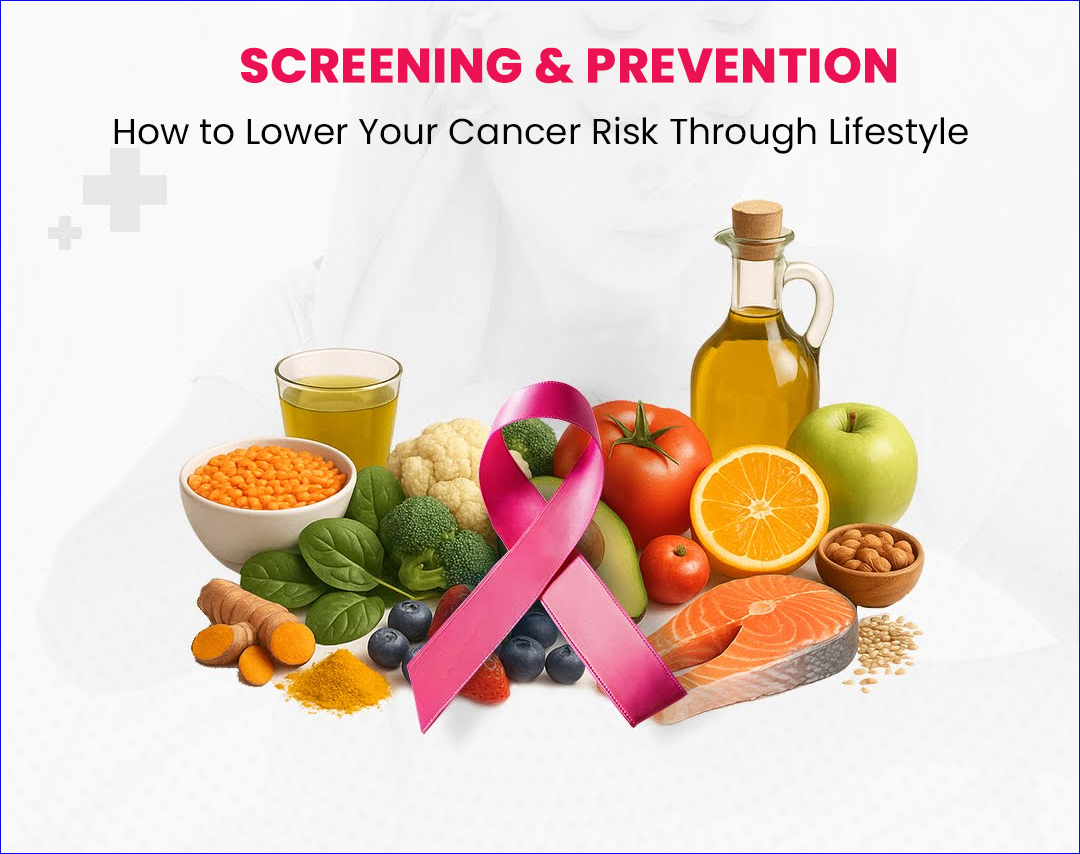Screening & Prevention: How to Lower Your Cancer Risk Through Lifestyle

Cancer remains one of the leading causes of death worldwide, but the
good news is many types of cancer are preventable. While genetics play a
role, lifestyle choices and regular screening can dramatically lower your risk.
By making conscious decisions every day, you can protect your health and
improve your long-term wellbeing.
The Power
of Early Screening
Cancer screening helps detect the disease in its earliest, most
treatable stages often before symptoms appear.
Recommended screenings include:
- Mammogram – for early detection of breast cancer
- Pap smear & HPV testing – for
cervical cancer
- Colonoscopy – for colorectal cancer
- Low-dose CT scan – for lung
cancer (especially in smokers)
- PSA test – for prostate cancer
Tip: Regular screening
is especially important if you have a family history of cancer. Early detection
saves lives.
Lifestyle
Changes That Reduce Cancer Risk
1. Eat a Balanced, Plant-Rich Diet
Include more fruits, vegetables, whole grains, and legumes. These
foods are high in fiber and antioxidants that help protect your cells. Avoid
processed and red meats, and limit sugary drinks and refined foods.
2. Maintain a Healthy Weight
Obesity is linked to several cancers, including breast, colon, and
pancreatic cancer. Regular exercise and portion control play a major role in
prevention.
3. Stay Physically Active
Aim for at least 150 minutes of moderate activity (like brisk
walking) or 75 minutes of vigorous activity (like running) each week.
4. Quit Smoking
Tobacco is the leading preventable cause of cancer. Quitting reduces
your risk for lung, mouth, throat, bladder, and kidney cancers at any age.
5. Limit Alcohol Intake
Even moderate drinking increases the risk of cancers such as breast,
liver, and colorectal. The safest choice is to avoid alcohol altogether.
6. Protect Your Skin
Prolonged exposure to UV rays can cause skin cancer. Use sunscreen, wear
protective clothing, and avoid tanning beds.
7. Get Enough Sleep & Manage Stress
Chronic stress and lack of rest can weaken your immune system. Practice
mindfulness, meditation, or yoga to keep your mind and body balanced.
Know
Your Family History
If close relatives have had cancer, share this information with your
doctor. You may benefit from genetic testing and more frequent
screenings.
While we cannot control every factor that contributes to cancer, we can
take powerful steps to reduce our risk. Regular screening, healthy
lifestyle choices, and staying informed are your best tools for prevention.
Take charge of your health today — small changes
make a big difference in tomorrow’s outcomes.
